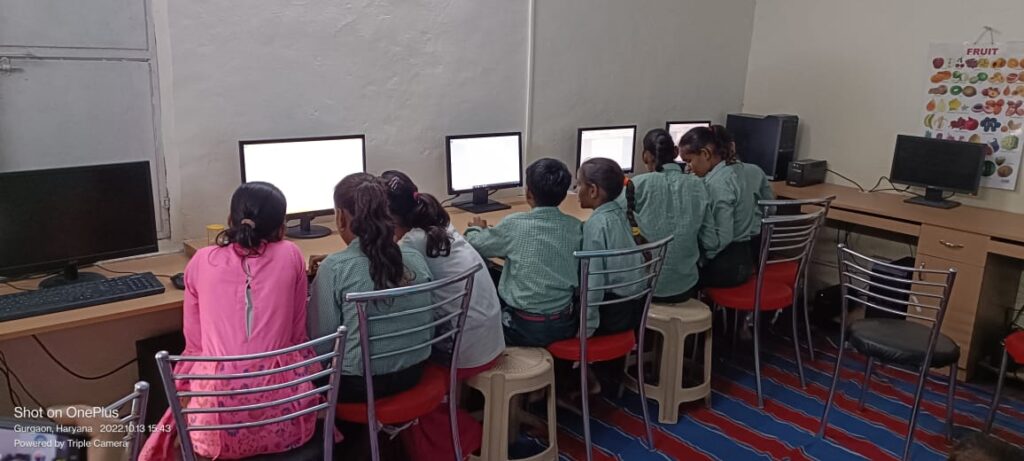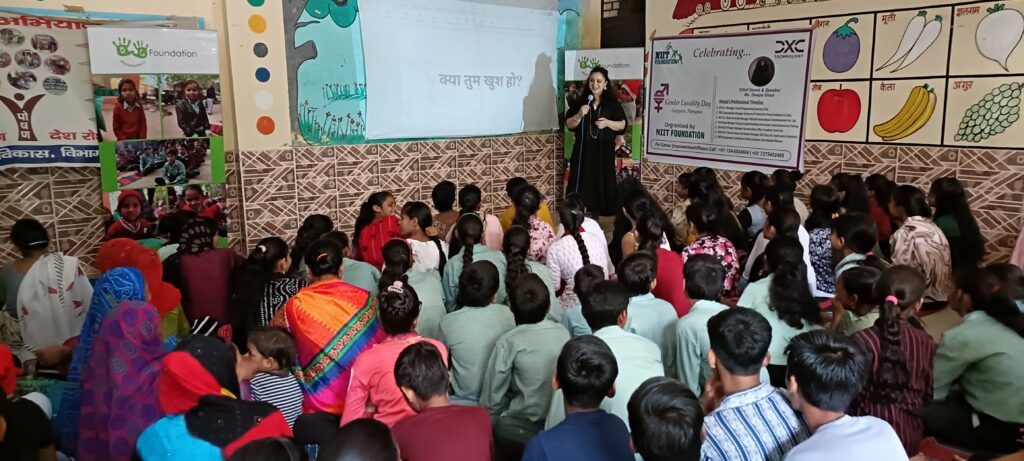Education is a powerful tool that can empower individuals and communities, providing them with the knowledge and skills necessary to improve their lives and break free from the cycle of marginalization. For marginalized youth, education is particularly crucial as it offers a pathway to social mobility and a chance to overcome the barriers they face. By investing in education for marginalized youth, we can create a more inclusive and equitable society.
Marginalized communities often face numerous challenges that hinder their access to education. These challenges can include economic barriers, discrimination and prejudice, and a lack of resources and infrastructure. It is essential to address these barriers and create opportunities for marginalized youth to access quality education.
The Challenges Faced by Marginalized Youth in Accessing Education
Economic barriers are one of the primary challenges faced by marginalized youth in accessing education. Many marginalized communities struggle with poverty, making it difficult for families to afford school fees, uniforms, textbooks, and other educational expenses. This financial burden often forces children to drop out of school or prevents them from enrolling in the first place.
Discrimination and prejudice also pose significant obstacles to education for marginalized youth. They may face discrimination based on their race, ethnicity, gender, or socioeconomic status, which can lead to exclusion from educational opportunities. Prejudice can also manifest in the form of stereotypes and biases held by teachers and administrators, resulting in lower expectations and limited opportunities for marginalized students.
Additionally, marginalized communities often lack the necessary resources and infrastructure to support quality education. Schools in these areas may be overcrowded, poorly equipped, or located far away from where students live. Limited access to technology and internet connectivity further exacerbates the educational divide between marginalized youth and their more privileged counterparts.
The Impact of Marginalization on Youth Education
Marginalization has a profound impact on the education outcomes of youth. Marginalized students often experience lower academic achievement compared to their peers. This can be attributed to a combination of factors, including limited access to quality education, lack of resources and support, and the stress and trauma associated with living in marginalized communities.
Higher dropout rates are also prevalent among marginalized youth. The challenges they face, such as poverty, discrimination, and limited opportunities, can lead to feelings of hopelessness and a lack of motivation to continue their education. Without adequate support and intervention, many marginalized students may drop out of school, further perpetuating the cycle of marginalization.
Limited opportunities for higher education are another consequence of marginalization. Higher education institutions often have higher admission requirements and may be inaccessible or unaffordable for marginalized youth. This lack of access to higher education limits their prospects for career advancement and economic empowerment.
The Role of Education in Breaking the Cycle of Marginalization
Education plays a crucial role in breaking the cycle of marginalization by providing marginalized youth with the skills and knowledge necessary for economic empowerment. By acquiring an education, marginalized individuals can gain the tools they need to secure better-paying jobs and improve their financial stability. Education equips them with transferable skills that can open doors to various career opportunities.
Furthermore, education promotes social inclusion and equality by breaking down stereotypes and prejudices. Through education, marginalized youth can challenge societal norms and expectations, proving that they are capable of achieving great things. Education fosters empathy and understanding, helping to create a more inclusive society where everyone has equal opportunities.
Strategies for Improving Education Access for Marginalized Youth
To improve education access for marginalized youth, several strategies can be implemented. Providing financial support and scholarships is one effective approach. By offering scholarships or grants, we can alleviate the financial burden on marginalized families and ensure that all children have equal access to education.
Investing in infrastructure and resources is another critical strategy. Building schools in marginalized communities, equipping them with necessary resources such as textbooks and technology, and improving transportation infrastructure can help bridge the educational divide. By bringing education closer to marginalized youth, we can increase their chances of accessing quality education.
Addressing discrimination and prejudice is also essential. This can be achieved through teacher training programs that promote cultural sensitivity and inclusivity in the classroom. Schools should have policies in place to prevent discrimination and provide support for marginalized students who may face bullying or harassment.
The Importance of Mentorship and Support for Marginalized Youth in Education
Mentorship and support play a crucial role in the educational journey of marginalized youth. Many marginalized students lack role models and guidance, making it difficult for them to navigate the challenges they face. Mentorship programs can provide guidance, motivation, and support to marginalized youth, helping them overcome obstacles and stay on track with their education.
Mentors can also play a significant role in building self-esteem and confidence among marginalized youth. By providing encouragement and positive reinforcement, mentors can help marginalized students believe in their abilities and potential. This increased self-esteem can have a profound impact on their educational outcomes.
Creating a sense of community and belonging is another important aspect of mentorship and support. Marginalized youth often feel isolated and disconnected from mainstream society. By providing them with a supportive community, mentors can help marginalized students feel valued and included, creating an environment where they can thrive academically.
The Benefits of Education for Marginalized Youth

Education offers numerous benefits for marginalized youth that extend beyond academic achievement. Improved health and well-being are among these benefits. Education equips individuals with knowledge about health practices, hygiene, and disease prevention, empowering them to make informed decisions about their well-being.
Education also increases civic engagement and social participation among marginalized youth. By providing them with the knowledge of their rights and responsibilities as citizens, education encourages active participation in community development initiatives, advocacy, and social justice movements. This increased engagement can lead to positive social change and the empowerment of marginalized communities.
Furthermore, education opens up greater economic opportunities and financial stability for marginalized youth. With an education, individuals are more likely to secure higher-paying jobs and have access to career advancement opportunities. This economic empowerment can help break the cycle of poverty and improve the overall well-being of marginalized communities.
The Link Between Education and Economic Empowerment for Marginalized Youth
Education is a pathway to higher-paying jobs and career advancement, making it a crucial factor in economic empowerment for marginalized youth. With an education, individuals acquire the skills and knowledge necessary to compete in the job market and secure employment in industries that offer better wages.
Moreover, education has a direct impact on poverty reduction and economic growth. By investing in education for marginalized youth, we can equip them with the skills needed to contribute to the economy and break free from the cycle of poverty. Educated individuals are more likely to earn higher incomes, which can lead to increased consumer spending, investment, and overall economic development.
The Need for Inclusive Education Policies and Programs
Inclusive education policies and programs are essential to address the needs of diverse learners, including marginalized youth. These policies should ensure that all students have equal access to quality education, regardless of their background or circumstances. Inclusive education promotes diversity and inclusion in the classroom, creating an environment where all students feel valued and supported.
Creating a supportive and welcoming learning environment is crucial for marginalized youth. Schools should implement policies that address discrimination, bullying, and harassment, ensuring that all students feel safe and respected. Additionally, schools should provide support services such as counseling and mentoring to help marginalized students overcome challenges and succeed academically.
The Role of Non-Governmental Organizations in Promoting Education for Marginalized Youth
Non-governmental organizations (NGOs) play a vital role in promoting education for marginalized youth. These organizations provide resources and support for education initiatives, including scholarships, school supplies, and infrastructure development. NGOs often work closely with local communities and stakeholders to identify the specific needs of marginalized youth and develop targeted interventions.
NGOs also play a crucial role in advocating for policy change and reform. They work to raise awareness about the importance of education for marginalized youth and push for policies that promote inclusivity and equality in education. By partnering with governments, NGOs can influence policy decisions and ensure that the needs of marginalized youth are prioritized.
Investing in Education for Marginalized Youth for a Brighter Future

Investing in education for marginalized youth is not only a matter of social justice but also a strategic investment in the future of our society. By providing marginalized youth with access to quality education, we can empower them to overcome the barriers they face and create a more inclusive and equitable society.
Education has the power to transform lives and communities. It provides marginalized youth with the skills, knowledge, and opportunities they need to break free from the cycle of marginalization and achieve their full potential. By investing in education initiatives for marginalized youth, we can create a brighter future for all.


